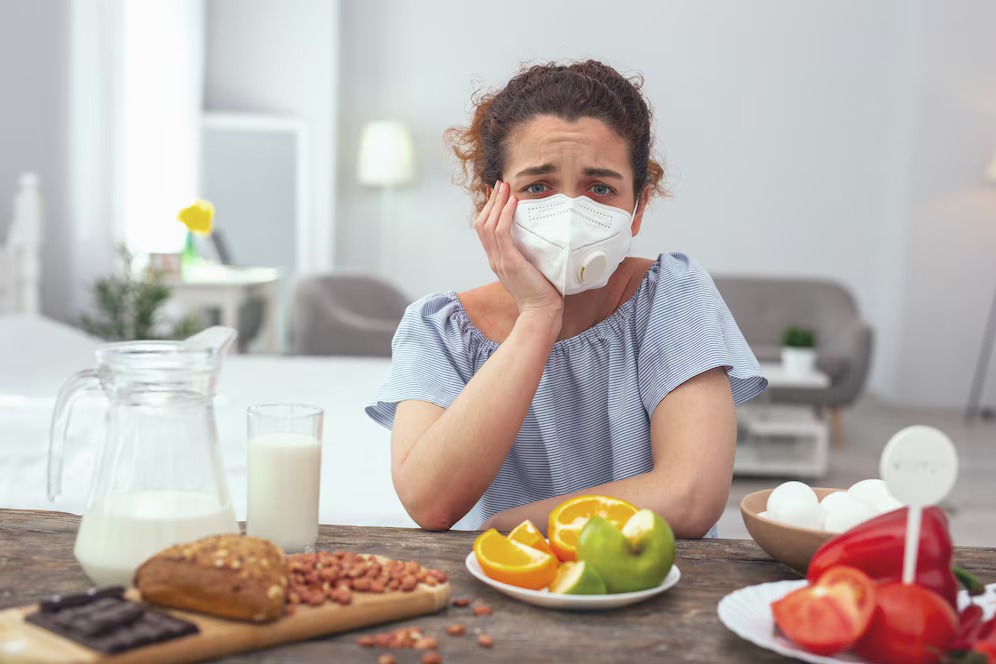Food Allergies and Allergy Management: A Comprehensive Guide to Staying Safe
Food allergies occur when the immune system overreacts to specific proteins in food, triggering symptoms that range from mild discomfort to life-threatening anaphylaxis. Effective management is critical to preventing reactions and ensuring safety. This article explores common food allergens, symptoms, diagnosis, and strategies for living well with food allergies.

Understanding Food Allergies
Food allergies are immune-mediated reactions to certain foods. The most common allergens, known as the “Top 9,” include milk, eggs, peanuts, tree nuts, soy, wheat, fish, shellfish, and sesame (added in 2023 under the FASTER Act). Reactions can be IgE-mediated (immediate, involving histamine release) or non-IgE-mediated (delayed, affecting the gut or skin).
Common Symptoms
- Mild to moderate: Hives, itching, swelling (lips, face, tongue), stomach pain, vomiting, nasal congestion.
- Severe (anaphylaxis): Difficulty breathing, wheezing, throat tightness, rapid pulse, dizziness, loss of consciousness.
Symptoms typically appear within minutes to 2 hours after exposure but may be delayed in rare cases (e.g., FPIES).
Diagnosis and Testing
Accurate diagnosis is essential for effective management:
- Skin prick tests: Detect IgE antibodies to specific allergens.
- Blood tests: Measure IgE levels (e.g., ImmunoCAP).
- Oral food challenges: Conducted under medical supervision to confirm allergies.
- Elimination diets: Identify triggers by removing and reintroducing suspected foods.
Note: Self-diagnosis or unverified at-home tests can lead to unnecessary dietary restrictions. Always consult an allergist.
Allergy Management Strategies
- Avoidance:
- Read labels carefully for allergens (e.g., “contains peanuts” or “may contain traces”).
- Be cautious with cross-contact during food preparation.
- Emergency Preparedness:
- Carry epinephrine auto-injectors (e.g., EpiPen) at all times.
- Wear a medical alert bracelet.
- Treatment Options:
- Antihistamines for mild reactions (e.g., hives).
- Epinephrine for anaphylaxis (administer immediately, then call emergency services).
- Immunotherapy: Emerging treatments like oral immunotherapy (OIT) to desensitize the immune system.
- Education:
- Teach caregivers, schools, and workplaces about allergy action plans.
- Recognize early symptoms and act quickly.
Special Considerations
- Oral Allergy Syndrome (OAS): Itchy mouth from raw fruits/vegetables due to pollen cross-reactivity. Cooking the food often eliminates the reaction.
- Food Protein-Induced Enterocolitis Syndrome (FPIES): Severe vomiting/diarrhea 2–6 hours after eating (common triggers: milk, soy, grains). Requires IV fluids in emergencies.
- Non-IgE Allergies: Delayed reactions (e.g., eczema, blood in stool) often misdiagnosed as intolerances.
Prevention and Future Directions
- Early introduction: Introducing peanuts and eggs to high-risk infants at 4–6 months may reduce allergy risk.
- Labeling laws: The FASTER Act mandates sesame labeling from 2023, improving transparency.
- Research: Biologic drugs (e.g., omalizumab) and microbiome studies offer hope for long-term solutions.
FAQs
1. What are the most common food allergens?
The Top 9 include milk, eggs, peanuts, tree nuts, soy, wheat, fish, shellfish, and sesame.
2. How is a food allergy different from an intolerance?
Allergies involve the immune system and can cause life-threatening reactions, while intolerances (e.g., lactose) typically cause digestive discomfort.
3. Can food allergies be outgrown?
Some allergies (e.g., milk, eggs) may resolve in childhood, but peanut and shellfish allergies are often lifelong.
4. What should I do if I accidentally eat an allergen?
Use an epinephrine auto-injector immediately if severe symptoms occur, then seek emergency care267.
5. Are there treatments to cure food allergies?
While there’s no cure, oral immunotherapy (OIT) can desensitize some patients to allergens under medical supervision.
We provide personalized strategies to manage food allergies—from emergency plans to immunotherapy—so you can live confidently. Visit us at https://specialtycareclinics.com/ or call us at (972) 865- 4454 to schedule an appointment. Walk-ins & new appointments available.
